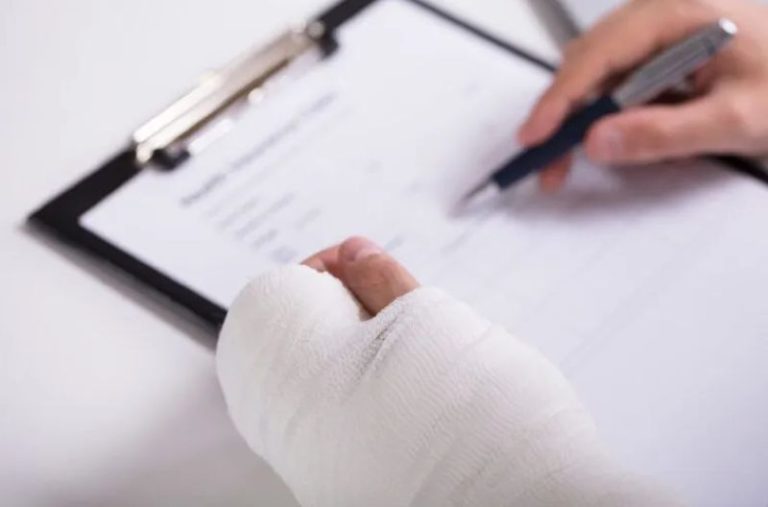

Have you ever considered the far-reaching financial consequences of a personal injury? Beyond the immediate medical bills and lost wages, an injury can trigger a cascade of economic impacts that reverberate through your life for years to come. From derailed career trajectories to depleted savings and mounting debts, the actual cost often exceeds initial estimates. Whether looking for personal injury lawyer queens, in this article, we’ll examine the multifaceted economic fallout individuals face in the wake of injuries.
Understanding the Economic Impact of Personal Injuries
Personal injuries can have far-reaching financial consequences that extend well beyond immediate medical expenses. You may face a significant loss of income due to time away from work, which could jeopardize your career trajectory and long-term earning potential.
Additionally, ongoing medical treatments, rehabilitation costs, and necessary lifestyle modifications can quickly deplete savings, leading to mounting debt. The ripple effects often impact your entire household, as family members may need to reduce work hours to provide care.
Furthermore, the stress of managing these financial burdens can exacerbate health issues, creating a vicious cycle of increasing expenses and decreasing resources. Understanding these multifaceted economic impacts is crucial for comprehensively addressing the aftermath of a personal injury.
Medical Expenses: The Tip of the Iceberg
When you suffer a personal injury, the immediate medical costs can be staggering. Emergency room visits, surgeries, and hospital stays quickly add up, often reaching tens of thousands of dollars. However, these initial expenses are just the beginning. Long-term treatments, such as physical therapy, medication, and follow-up appointments, can continue for months or even years.
Additionally, you may need to modify your home or vehicle to accommodate new physical limitations. It’s crucial to consider these ongoing costs when assessing the full financial impact of an injury. Remember, insurance may not cover all expenses, leaving you with significant out-of-pocket costs that can strain your budget and savings for years to come.
Lost Wages and Diminished Earning Capacity
When you suffer a personal injury, the financial impact extends far beyond immediate medical expenses. Lost wages can quickly accumulate as you’re unable to work during recovery. Even more concerning is the potential for diminished earning capacity, where your injury affects your ability to perform your job long-term or advance in your career. This can result in significant lifetime earnings losses, especially for younger individuals or those in physically demanding professions.
It’s crucial to consider both short-term wage losses and long-term earning potential when evaluating the economic fallout of a personal injury. Proper documentation and expert analysis can help quantify these losses for insurance claims or legal proceedings, thereby supporting informed decision-making.
The Psychological and Emotional Toll
Personal injuries often inflict a heavy psychological burden on victims, extending far beyond physical pain. The trauma of an accident can trigger anxiety, depression, and post-traumatic stress disorder (PTSD), profoundly impacting one’s mental well-being. You may experience a loss of confidence and struggle with daily activities that were once routine. Sleep disturbances and nightmares are common, further exacerbating emotional distress.
Additionally, the stress of medical treatments, financial strain, and potential lifestyle changes can lead to feelings of frustration, anger, and helplessness. These psychological effects can persist long after physical wounds have healed, emphasizing the importance of holistic recovery approaches that address both mental and physical health.
Navigating the Legal Landscape: Securing Compensation
When facing the financial aftermath of a personal injury, understanding your legal options is crucial. You may be entitled to compensation for medical expenses, lost wages, and pain and suffering. Consulting with an experienced personal injury attorney can help you navigate the complex legal process and maximize your potential recovery.
Your lawyer will gather evidence, negotiate with insurance companies, and if necessary, represent you in court. They can also help you understand the statute of limitations for filing a claim in your jurisdiction. Remember, time is often of the essence in personal injury cases, so it’s essential to act promptly to protect your rights and financial interests.
Final Thoughts
As you navigate the complex aftermath of a personal injury, understanding the full scope of economic impacts is crucial. From immediate medical expenses to long-term career implications, the financial fallout can be far-reaching. Whether looking for personal injury lawyer queen, by thoroughly documenting all injury-related costs, consulting with financial and legal professionals, and exploring all available compensation options, you can work to mitigate these economic burdens.


